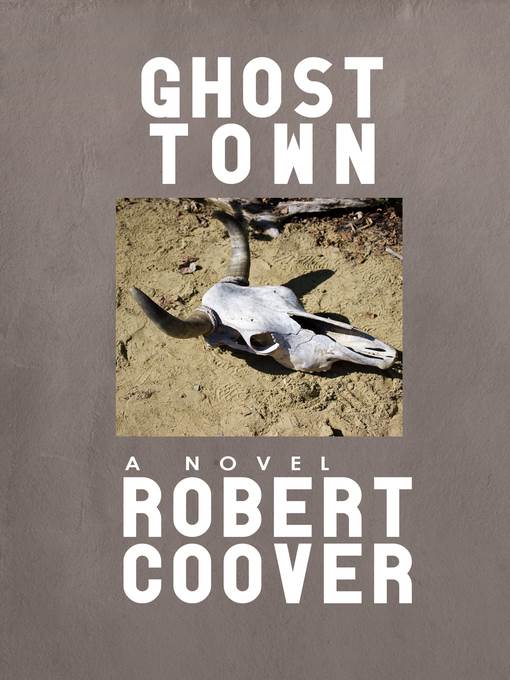
Ghost Town
- اطلاعات
- نقد و بررسی
- دیدگاه کاربران
نقد و بررسی

August 31, 1998
A nameless drifter rides into a ghost town from a desolate wilderness. His horse wanders off. Hearing noises in the saloon, he enters to find a crew playing poker, a humpback at the piano and a red-haired chanteuse pitching a doleful melody. These pop tropes, culled from westerns and dirty jokes, are trademark Coover material. As you'd expect, things rapidly shift--the humpback becomes a deputy, the drifter a sheriff, the poker-playing crew now a posse, now a lynch mob. As in A Night at the Movies, persons and places are variables in an equation and have a tendency to rapidly shuck identities, while their relationships, ossified in the cliches where Coover found them, remain constant. The chanteuse and the schoolmarm seem to be the only characters who are anchored in the real world, but don't bet on it. This novel is written in the Davy Crockett English Coover employed with devastating wit in The Public Burning ("Us proper ladies jest ain't habituated t'sechlike incivil misabuse," "I tole him he wuz a rat for stealin thet hoss," etc.), but here the jokiness is forced, and the language never takes off. Coover's career is divided between the genius who wrote The Public Burning and most of Gerald's Party and the smarty-pants who wrote Spanking the Maid and parts of Pinocchio in Venice. The smarty-pants knows all too much about literary theory but can't distinguish between a sneer and a laugh. The genius, on the other hand, like a lyrical W.C. Fields, taps into the rudiments of liberation submerged in the lamest practical joke. Sad to say, the smarty-pants runs this town.

July 1, 1998
Coover, one of the pioneer American postmodernist writers, specializes in elaborate parodies of worn-out fictional genres, such as the fairy tale (Briar Rose, LJ 1/97) and the bedtime story (Pinocchio in Venice, S. & S., 1991). His latest novel takes on the classic Western. Coover's hero, known as the kid, wanders into a nightmarish frontier town populated by the stock characters of the Old West. The kid alternately plays the roles of outlaw and sheriff as he engages in brawls, poker games, gunfights, and hangings. Coover finds broad comedy in these situations, and he takes particular delight in faithfully transcribing cowboy dialect, as in "Yu'll never git thar, kid." But the humor is dark and ugly, and the kid faces each new ordeal with a gloomy, existential hopelessness. Coover's signature fictional style aims at keeping the reader at arm's length, and this distancing, coupled with the Western parody's being an overdone genre itself, makes Ghost Town a book easier to admire than to love. Recommended mainly for comprehensive collections of postmodern fiction.--Edward B. St. John, Loyola Law Sch., Los Angeles

August 1, 1998
Coover's latest novel is an end-of-the-century, postmodern western that turns just about every one of the genre's cliche s inside out and upside down, and in the process, reconstitutes one of America's most enduring myths (that of the lone western hero) into a ribald fantasy. While the unnamed protagonist rides across the desert, he is stalked and literally overtaken by a ghost town whose citizens--all of whom are reprobates--push him into a series of bawdy and rambunctious tribulations. He becomes the town sheriff, a horse thief, and, briefly, leader of an outlaw gang. He meets Belle, the popular saloon singer, who immediately develops a crush on him, though he secretly harbors an infatuation with the prissy schoolmarm, who is forever correcting everyone's grammar. In this ghost town, there is absolutely no regard for life or property, not much interest in reality, and very little enthusiasm for the status quo. As such, it hits the mark dead on, leaving the reader feeling this was the way the Old West really was. ((Reviewed August 1998))(Reprinted with permission of Booklist, copyright 1998, American Library Association.)




دیدگاه کاربران